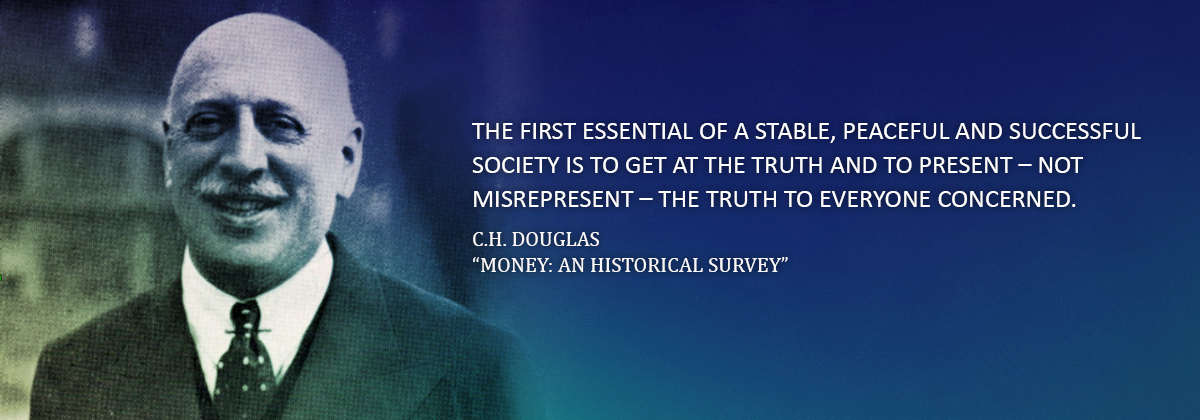What is the C.H. Douglas Institute?
 The C.H. Douglas Institute is a registered not-for-profit organization that is committed to furthering Social Credit education and facilitating Social Credit advocacy. ‘Social Credit’ being the name which is typically given to that coherent and cogent body of thought on social matters that was first developed in the early decades of the twentieth century by the brilliant Anglo-Scottish engineer, Major Clifford Hugh Douglas. On the one hand, the institute seeks to introduce the wider public to Douglas’ economic, political, and cultural ideas, while deepening the understanding of those who have already had some exposure to Social Credit. On the other hand, we wish to bolster the efforts of all those who have grasped the tremendous value and relevance of the Social Credit analysis and remedial proposals and who therefore wish to work for the establishment of a Social Credit commonwealth. This institute proposes to provide the necessary assistance by serving as a co-ordinating and resource centre for the wider Social Credit movement. Although based in the province of Ontario, Canada, we are keenly interested in assisting all suitably motivated individuals and groups, wherever they may be, in their endeavour to bring their respective societies into greater alignment with Social Credit principles.
The C.H. Douglas Institute is a registered not-for-profit organization that is committed to furthering Social Credit education and facilitating Social Credit advocacy. ‘Social Credit’ being the name which is typically given to that coherent and cogent body of thought on social matters that was first developed in the early decades of the twentieth century by the brilliant Anglo-Scottish engineer, Major Clifford Hugh Douglas. On the one hand, the institute seeks to introduce the wider public to Douglas’ economic, political, and cultural ideas, while deepening the understanding of those who have already had some exposure to Social Credit. On the other hand, we wish to bolster the efforts of all those who have grasped the tremendous value and relevance of the Social Credit analysis and remedial proposals and who therefore wish to work for the establishment of a Social Credit commonwealth. This institute proposes to provide the necessary assistance by serving as a co-ordinating and resource centre for the wider Social Credit movement. Although based in the province of Ontario, Canada, we are keenly interested in assisting all suitably motivated individuals and groups, wherever they may be, in their endeavour to bring their respective societies into greater alignment with Social Credit principles.






